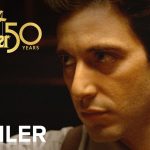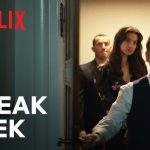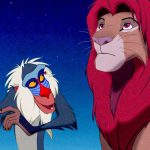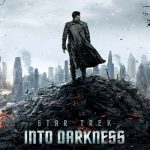Thor: The Dark World (2013)

Thor: The Dark World (2013) – A Visually Stunning but Flawed Sequel
As the second installment in the Thor franchise and the eighth entry in the Marvel Cinematic Universe (MCU), Thor: The Dark World (2013) had high expectations to deliver an epic follow-up to both Thor (2011) and The Avengers (2012). Directed by Alan Taylor and starring Chris Hemsworth as the mighty God of Thunder, the film takes Thor on a cosmic adventure filled with dark elves, ancient relics, and the ever-growing conflict between Asgard and the Nine Realms. Despite its grand visuals and strong performances, Thor: The Dark World struggles with an uneven tone, a lackluster villain, and a somewhat predictable storyline. Let’s explore what works, what doesn’t, and how this film fits into the greater MCU narrative.
Plot Summary: A Battle Across the Realms
The story picks up after The Avengers, with Thor (Chris Hemsworth) restoring order to the Nine Realms while Loki (Tom Hiddleston) faces imprisonment in Asgard for his crimes. Meanwhile, an ancient evil awakens in the form of Malekith (Christopher Eccleston), the leader of the Dark Elves, who seeks to reclaim the Aether, a powerful, reality-altering relic. When Jane Foster (Natalie Portman) accidentally becomes the host for the Aether, she is pulled into the center of the conflict, forcing Thor to protect her and battle Malekith before he can plunge the universe into darkness.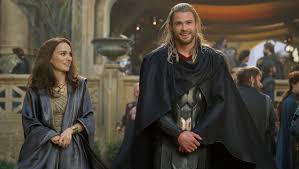
Chris Hemsworth as Thor: A Consistent Strength
Hemsworth continues to embody Thor with charisma, humor, and undeniable screen presence. His evolution from a brash warrior to a more responsible leader is evident, though the film doesn’t give him as many emotional moments as its predecessor. His interactions with Jane Foster and Loki remain highlights, showcasing both his heroic charm and his ability to navigate the complexities of family and duty.
Loki Steals the Show (Again)
One of the film’s biggest strengths is Tom Hiddleston’s portrayal of Loki. Following his breakout performance in The Avengers, Hiddleston brings depth, mischief, and complexity to the role. His uneasy alliance with Thor provides some of the film’s best moments, balancing humor, betrayal, and genuine emotion. The brotherly dynamic remains a standout element of the franchise, proving that Loki’s character arc is one of the most compelling in the MCU.
The Weakness of Malekith: A Forgettable Villain
One of the film’s biggest shortcomings is its antagonist. Malekith, played by Christopher Eccleston, had the potential to be a formidable foe, but the script fails to develop him beyond a generic villain with unclear motivations. His backstory and desires are underexplored, making him one of the most forgettable villains in the MCU. Despite his menacing design and impressive power, Malekith never feels like a true threat to Thor or Asgard, which diminishes the stakes of the film.
Visual Effects and Action Sequences: A Cinematic Spectacle
Where Thor: The Dark World excels is in its visual presentation. The depiction of Asgard, the Dark Elf ships, and the climactic battle in London are all beautifully crafted. The action sequences, particularly Thor’s battles with Malekith and the final reality-bending fight, are entertaining, showcasing a mix of hand-to-hand combat and powerful cosmic forces. However, some of the darker cinematography choices make certain sequences less visually engaging compared to the vibrant color palettes of later MCU films.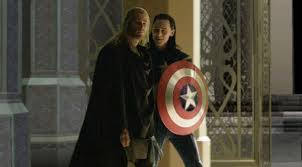
The Film’s Tone: A Struggle Between Seriousness and Humor
One of the more divisive aspects of Thor: The Dark World is its inconsistent tone. While the first Thor film balanced its humor and drama well, this sequel struggles to find that balance. Certain comedic moments, particularly involving Darcy Lewis (Kat Dennings) and Dr. Erik Selvig (Stellan Skarsgård), feel out of place or forced, undercutting some of the more serious moments of the film. While the MCU is known for its humor, the execution here is less effective compared to other entries in the franchise.
How It Fits Into the MCU
Despite its flaws, Thor: The Dark World plays a crucial role in the MCU. The introduction of the Aether as an Infinity Stone ties into the larger narrative leading up to Avengers: Infinity War (2018). Loki’s continued development and deception set the stage for future events in Thor: Ragnarok (2017) and beyond. While not the strongest MCU entry, its impact on the overarching story is undeniable.
Reception and Legacy
Upon its release, Thor: The Dark World received mixed-to-positive reviews, with praise for its action sequences, performances, and visuals but criticism for its weak villain and uneven tone. While it was a commercial success, grossing over $644 million worldwide, it remains one of the lesser-loved MCU films. Over time, fans have debated its place in the franchise, with many considering it one of the more forgettable entries despite its entertaining moments.
Final Verdict: A Visually Impressive but Uneven Sequel
Thor: The Dark World delivers on spectacle, action, and character dynamics but falls short in its storytelling and villain development. While Chris Hemsworth and Tom Hiddleston continue to shine, and the film’s impact on the greater MCU is significant, its execution leaves something to be desired. For fans of Thor’s journey, it’s an essential chapter, but compared to other Marvel films, it struggles to stand out. If you’re revisiting the MCU, this entry is worth watching for its role in the larger narrative, but it’s far from the franchise’s best.

